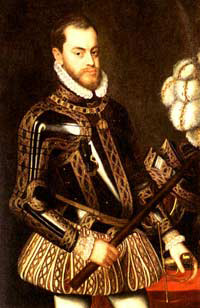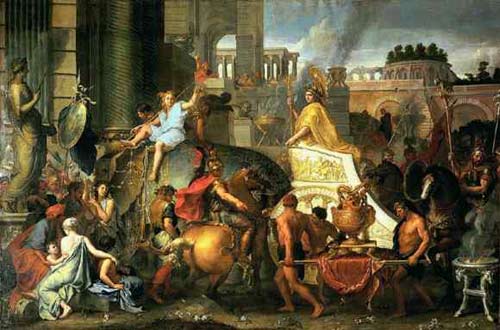The mysterious Alexander tomb
Alexander the Great (356 - 323 BC) was the son of Macedonian King Philip II. Immediately after taking the throne (in 336 BC), he began invading to the East. In just over 10 years, from East to West, Alexander established an Alexander empire with a large map, east to the Ganges, west to Sanniro River and Balkan Peninsula.
The mystery has no answer to the mysterious Alexander tomb
Alexander was once an eminent hero, and also a mystical figure. Legends tell him a lot. Unfortunately, the historical records of his life no longer exist. Later there were also some books that were copied but had many different opinions, were extremely contradictory and carried heavy colors, personal colors. Therefore, even though it was more than 2,300 years after his death, the great military career of this ancient marshal still made people extremely interested. There have been claims to find Alexander's tomb , from the excavated artifacts that will identify some valuable historical evidence, to evaluate the once-arrogant hero's career.

Macedonian King Philip II.
One day of 1964, the Egyptian City newspaper published a sensational news: "The mausoleum of one Alexander - the Macedonian king was found! A great achievement of Polish archaeologists ". This news quickly spread throughout the World. The New York Times of America immediately published the news and sent a Polish archaeological team a telegram, hoping they would write an article about this great discovery, promising to pay very high royalties. Journalists from other countries also came to Egypt. At the same time, a large number of readers flocked to the city, making the Egyptian police always in a state of emergency alert.
Unfortunately, this news is fake. The discovery is not Alexander's tomb but the site of an ancient Roman monastery . So where is this one of the famous figures in history? How did he die? About this secret there are many different opinions.

The cause of Alexander's death has two legends . Legend says that when he expeditioned India , in a place not far from Babylon , some astronomers and see the fortune telling saw, advised him not to go to Babylon, afraid that he would heal much less. . However, he did not stop walking, but from then on his xinxing changed into depression.
Once, Alexander controlled the battleship on the lake surface, suddenly the wind blew, sending his hat into the reeds, but fell on the tomb of King Azo himself . All entourage and even Alexander himself thought that this was an evil sign. The sailor who was sent to get the hat, when he came back, dared to put his hat on his head. Alexander angrily immediately cut the sailor right away.
Soon Alexander became seriously ill, 13 days later, one evening in June 323 BC King died. Alexander was King for 12 years, 8 months, when he was 32 years old.
Such junk stories, perhaps just a coincidence . In fact, Alexander's death was very likely due to arduous operations, and many times through the battle, he wore injuries, in the swamp, became infected with malaria.
In addition, another legend said: "At a party someone offered Alexander a glass of poisoned wine." If this legend is true, Alexander died of a plot, not a natural death.
After Alexander died, Ptolemaic general - his lower minister (later to become the King of Egypt) used distant spirits carrying the King's corpse to Egypt, burial in Alexander Castle and built him a tomb. same splendor.

Caesar the great emperor, the Kalakal Emperor, Emperor Augustin, the famous figures in history, have also come here to worship, and put more on the head of Alexander a golden crown. But by the fourth century AD, the stories of Alexander's tomb, for some reason, are no longer known. In 642 AD, the great Greek army took over Alexander Castle. The glorious historical vestiges here made them a switch. In 1798, when Napoleon's army entered Alexander Castle, the scene here was decaying. In the city there are only 7,000 inhabitants. Some scholars who followed Napoleon only saw the ruins of ancient buildings. At the beginning of the nineteenth century, here began construction of ports. Ancient archaeological site has become a quarry, gradually disappearing in the eyes of people.
According to ancient Greek practices , the King built the city, after he died, he was buried in the city center. So that there is an analytical archaeologist that Alexander tomb must be at an intersection of two streets.
In recent years, the Polish archaeologist Malia, after studying the ancient temple tombs excavated here, discovered: The ancient people when making lamps, above all made a model of Thanh Alexander ancient. From there she made an interesting speculation that boldly: In the temple model, there is a conical structure, it is possible that it is the tomb of Alexander the Great by the tomb of Emperor Augustin with ants. Conical pointed peak structure, this type of tomb is most likely adapted to Alexander's tomb.
Willi, an Englishman who conducted research on the Ptolemaic dynasty 's grave, thinks that these graves are definitely the same as Alexander's tomb. He imagined Alexander's coffin was housed in a large temple, surrounded by circular pillars, in which there were many rare and sophisticated furniture in the grave. It is also possible to keep records of the history of the episodes from all over Egypt. At the end of the twentieth century, a surprisingly large discovery corroborated these conjectures. Androniks archaeologists specializing in ancient Macedonian history discovered the tomb of Philip II - Alexander's father.
In the middle of the palace, Philip II placed a huge marble casket , on the face of precious stones. The vase is very heavy gold grave decoration. The remains of the King lay in it, surrounded by some jewels of gold and silver, and the helmet of the scepter, glistening, appealing to all who came to see it. Among those treasures, there are 5 statues made of ivory, which are crafted very subtly, especially attracting people's attention. These five statues are the king's family statues: Philip II himself, his wife, Alexander's son and Philip II's model. This discovery surprised the archeologists and was considered the greatest discovery of archeology in the Century.

Emperor Augustin
In joyful joy, one cannot help but ask: The tomb of King Philip II has found, could he not find his son's tomb? But the reality is still the reality, the mysticism of Alexander tomb is more mystical, making it difficult to reach.
Who can open up the secret of this tomb? People are still waiting patiently. If found, it is very likely that archaeologists will unearth the artistic and cultural items of many peoples at that time along with a large number of historical documents for archeology. It will be a great contribution to archeology and a great contribution to human civilization .
- Find remains in the mysterious tomb of Alexander the Great
- Found the tomb of Alexander the Great?
- Excavation of the grave involves Alexander the Great in Greece
- Looking to find Alexander the Great Tomb?
- The tombs are the most mysterious in the world
- Discovered two female statues in the Amphipolis tomb area
- Scary discovery about 1,400-year-old 'tomb of ghosts'
- New assumptions about the relics of Alexander the Great?
- Mysterious 'mystical' burial place 4,000 years old in England
- Mysterious tomb headless of ancient Mayans
- The remains of Father Alexander the Great have been found
- Mysterious discoveries in the Middle Ages
 The truth about the mysterious red-haired giant at Lovelock Cave
The truth about the mysterious red-haired giant at Lovelock Cave Inunaki Tunnel: The haunted road leading into Japan's 'village of death'
Inunaki Tunnel: The haunted road leading into Japan's 'village of death' The mystery of the phenomenon of human reflection before dying
The mystery of the phenomenon of human reflection before dying 6 mysterious phenomena, although science has been developed for a long time, still cannot be answered
6 mysterious phenomena, although science has been developed for a long time, still cannot be answered